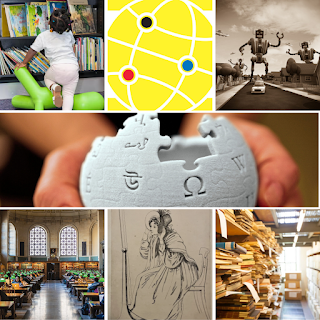Jane Buggle, Co-Manager, IOAP, and Institute Librarian, IADT.
The importance of Diamond Open Access globally is underlined by some key developments and reports including: the Science Europe Diamond OA Action Plan and Report of the 2nd Diamond Open Access Conference; the DIAMAS Landscape Report and Sustainability Report; the CRAFT-OA Diamond Discovery Hub, and the NORF Action Plan and ensuing NORF-funded projects.
In January, I posted a call for nominations for the inaugural IOAP Diamond Open Access Publishing Awards. Submissions were invited in the following categories:
= Best Peer-Reviewed Open Access Journal
= Best Peer-Reviewed Open Access Monograph
= Best Open Educational Resource
= Outstanding Contribution to Diamond Open Access Publishing in Ireland
The response was phenomenal. Almost 50 submissions were received across the categories, most being for the Journal and Outstanding Contribution categories. Unfortunately, there were no qualifying nominations for the OA Monograph category.
The Judges
- Judith Barnsby (Head of Editorial, DOAJ)
- Jane Burns (Director of Education and Public Engagement, Technological University of the Shannon)
- Dr Catherine Cronin (Independent Open Educator and Researcher)
- Jan Erik Frantsvag (Open Access Advisor, UIT Arctic University of Norway, and WP Lead EU Project DIAMAS)
- Mark Huskisson (Senior Consultant, PKP, and Co-Chair of the Commons, OPERAS)
- Dr Lai Ma (Assistant Professor, School of Information and Communications Studies, UCD)
- Dr Graham Stone (Subject Matter Expert OA Monographs, Jisc, and Lead on the EU Project DIAMAS)
The judges were very impressed with the standard of the submissions and the decisions were close calls with just one point separating some of them. The winners of the awards were announced at the Inaugural IOAP Annual Conference held online on 12th March and the winners each were afforded the opportunity to discuss their projects.
The Winners
Best Peer-Reviewed Diamond Open Access Journal
Alphaville Journal of Film and Screen Media
Alphaville is published by the Department of Film and Screen Media at University College Cork and is archived in CORA, the Cork Open Research Archive, UCC Library. The judges were impressed by the high quality of the content, the engaging design features, the adherence to the highest publishing standards which have earned it the DOAJ Seal, and by the consistency of its publication over many years. Dr Laura Rascarolli, Editor-in-Chief, accepted the award for the Alphaville Team.
Best Open Educational Resource
MTU Assignment Toolkit
The MTU Assignment Toolkit was designed by the Library Team at Munster Technological University. The judges commented on its ease of use and its comprehensiveness across all areas of information skills, and the awarding of digital badges up completion. Sinead Hanrahan accepted the award on behalf of MTU Library.
Outstanding Contribution to Diamond Open Access Publishing in Ireland
The judges had a particularly difficult time adjudicating this category because of the high calibre of submissions. In the end, they could not differentiate between two exceptional submissions. They also felt that a third submission should receive an Honourable Mention.
- Joint Winners
Yvonne Desmond
The judges were highly impressed by the sterling work that Yvonne Desmond did over a 15-year period to champion Diamond Open Access Publishing at Technical University Dublin. Yvonne built up Arrow@TUDublin over this period to be one of the most successful open repositories in the country, with over 11m downloads and some 14 Diamond OA academic journals. The judges commended Yvonne’s significant contribution to Diamond OA at the EU level through the EUt+ project.
The SCENARIO Project
The judges applauded the work of Dr Manfred Schewes and Dr Susanne Even in establishing the SCENARIO Project which comprises the SCENARIO Journal, the Scenario (E-)Book Series, and the Scenario Forum, the SCENARIO Correspondents Initiative, and the SCENARIO Archive. The Project is run by the Department of Theatre and the Department of German at University College Cork. SCENARIO Journal was founded in 2007. Dr Manfred Schewes and Dr Susanne Even accepted the award.
- Honourable Mention
The judges unanimously agreed that Professor Peter Coles, Maynooth University, should be awarded an Honourable Mention. This award recognises Professor Coles’ tireless advocacy of Diamond OA scientific publishing and, in particular, his founding of the influential Open Journal of Astrophysics, published by MU Library.
The IOAP Committee was delighted to announce such high calibre winners of the inaugural IOAP Diamond Open Access Publishing Awards and sends warm congratulations to all. We are also very grateful to all the nominators and the nominees. We look forward to a receiving a wide selection of submissions in 2025 after which a Winners’ Symposium will be held, giving the IOAP Award Winners an opportunity to share their winning projects and journals. The IOAP Annual Conference will be an in-person event in 2025. Details to follow.










.png)



.PNG)


